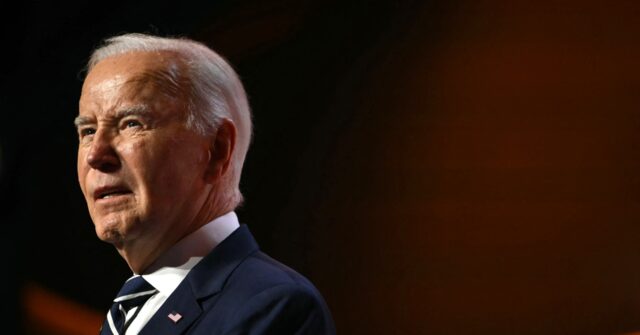In a significant move just weeks before President Joe Biden’s tenure ends, he reaffirmed the United States’ commitment to ambitious climate goals under the Paris Climate Agreement. The new targets, as outlined in a White House statement, involve aims to reduce economy-wide greenhouse gas emissions by 61-66 percent below 2005 levels by 2035. This announcement, described as one of the final initiatives of Biden’s administration, appears poised to shape the U.S. climate agenda even amidst uncertainty about its longevity due to the incoming Trump administration, which has indicated a desire to review or potentially withdraw from international environmental commitments.
Biden expressed his pride in the achievements of his administration, claiming it has orchestrated the boldest climate agenda in American history. In a video statement, he underscored the administration’s effort not only to combat climate change but also to transform the nation’s economy in a sustainable direction, aligning with a broader goal of reaching net zero emissions by 2050. Biden framed this challenge as a generational opportunity, presenting it as a pivotal moment for environmentally driven progress that could benefit future generations. His rhetoric highlights the interplay between climate action and economic revival, emphasizing the potential for innovation and job creation in the green sector.
However, there is skepticism regarding Biden’s ability to fulfill these commitments given the incoming Trump administration’s expected policy direction. Donald Trump, having been elected for a second term, is anticipated to continue his previous agenda of rolling back environmental regulations and reassessing the U.S.’s role in international agreements like the Paris accord. During his first term, Trump withdrew the U.S. from the agreement, citing fears that it would undermine the American economy, a decision that garnered strong support from many Republicans. This shift reflects a broader ideological divide in the U.S. regarding the priorities of economic growth versus environmental sustainability.
Trump’s transition team articulated a vision that balances environmental stewardship with economic interests. Spokeswoman Karoline Leavitt emphasized Trump’s previous accomplishments, claiming his administration provided affordable and reliable energy while maintaining high-paying jobs. She projected confidence that his re-election would lead again to policies that ensure clean air and water for American families without compromising economic prosperity. This assertion resonates with a segment of the electorate that views stringent environmental regulations as detrimental to economic progress and job creation.
In response, Biden’s global climate envoy, John Podesta, expressed optimism about the role of the private sector and local governments in advancing climate action, even in the face of potential federal rollbacks under a Trump administration. Podesta suggested that while federal directives may shift under Trump, numerous stakeholders outside the federal government could drive meaningful climate action. This perspective underscores the complexity of climate policy, where local initiatives and private sector innovations can sometimes leverage change irrespective of federal governance.
Ultimately, the contrasting visions emerging from Biden and Trump encapsulate a critical juncture in U.S. environmental policy. The culmination of Biden’s legislative and executive efforts aimed at addressing climate change faces profound challenges should Trump pursue a path of deregulation and withdrawal from international accords. The interplay of local initiatives, private sector engagement, and federal policy underlines the multifaceted nature of the climate change discourse in America, emphasizing the need for continued advocacy and innovation regardless of who occupies the White House. As the nation prepares for this political transition, the future of U.S. climate action remains uncertain, yet the dialogues set by both administrations indicate that the battle between these competing visions is far from over.

